
Countries With Zero Income Tax For Digital Nomads
The remote work movement gathers more momentum each day. The inefficiencies (and annoyances) of daily commutes, ever-escalating costs for companies to rent office spaces, rapid evolutions in technology, and pandemic-related paradigm shifts have all combined to create a growing wave of digital nomads. These days, many jobs can be done from home and as long as reliable internet is available, anywhere in the world. Imagine chipping away at an article while lounging on a beach in Bermuda or editing a YouTube video at a cafe in Croatia - these are the exciting new realities for digital nomads.
One way to make this lifestyle work is to stay within the standard tourist visas offered by most nations (typically three to six months), and simply rent Airbnbs, or hostel-hop while there (which has been my strategy for the last two years). But another viable option that has recently emerged is the digital nomad visa. This progressive permit allows people like you and me to live in a foreign environment for anywhere from six months to multiple years. Each government has specific stipulations in order to qualify, but if approved, the following countries take zero income tax from digital nomads. Woo!
Bermuda
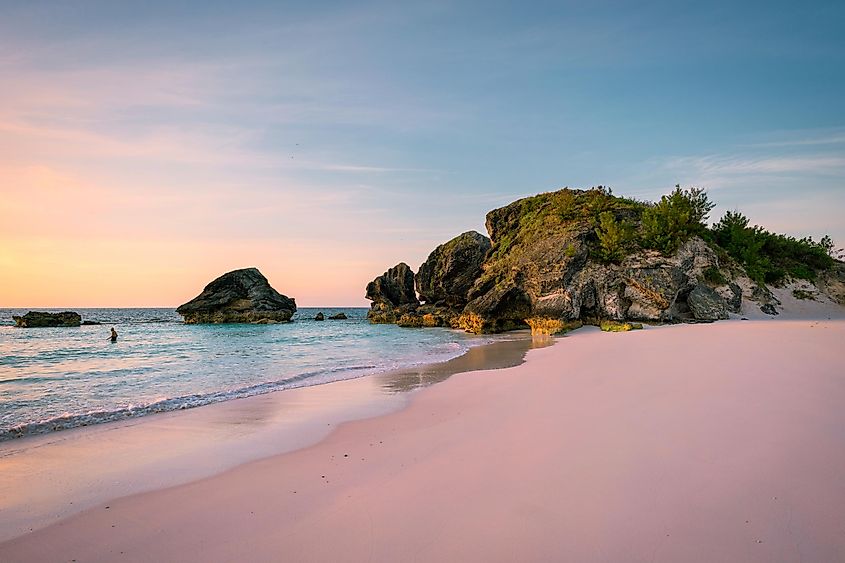
The beautiful and luxurious island of Bermuda is a small British Overseas Territory in the middle of the Atlantic Ocean. It is not only a popular vacation destination for many beach-seeking Americans, but now, remote workers and students can extend the fun for 12 months (and there's an option to renew). The Work From Bermuda Certificate is one of the easiest to apply for, as it can be done online in about 15 minutes, and a response can be expected within five business days. Unlike many digital nomad visas, there is no set income requirement, but unsurprisingly, proof of employment, a valid passport, and other basic documentation are necessary. Bermuda will not charge any income tax during your stay, but just be aware that the application fee is $275 (USD).
Cape Verde
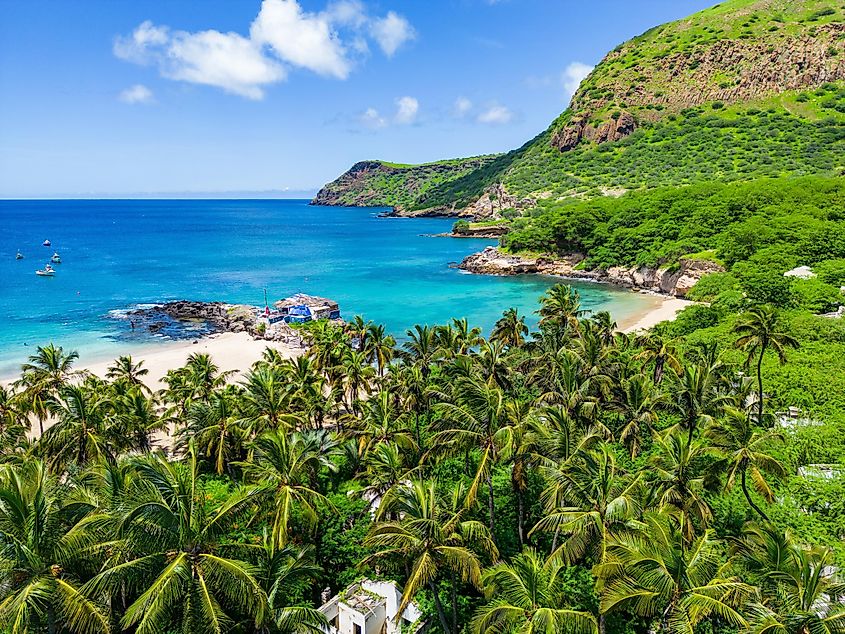
Another island paradise (or string of ten islands) that digital nomads can hunker down on at minimal cost is the African nation of Cape Verde, aka Cabo Verde. This vibrant archipelago sits off the northwest coast of the continent, providing a mix of serene beaches, dependable weather, cool culture, and nationwide internet coverage. Cape Verde's Remote Working Program can also be applied for online, takes about two weeks to process, and bears only modest stipulations. Anyone from Europe, North America, Community of Portuguese Speaking Countries (CPLP) and Economic Community of West African States (CEDEAO) can apply. They must demonstrate a bank balance of 1,500 Euros (2,700 for families) over the preceding six months, and present a valid passport and proof of insurance (this is standard for every country). There is no income tax to be paid over the six-month lifespan of the visa, and the application fee is just 20 Euro/person (but there is also an airport fee of €34 that pertains to everyone entering the country).
Costa Rica

Settle into "pura vida" in the wild, idyllic, safe, and well-connected lands of Costa Rica. Lately, this Central American adventure hub has carved out quite a reputation for itself as a digital nomad's dream. Remote workers can now extend the usual 90-day tourist visa for an entire year. The application can be done online or in person and, along with the usual international traveling requirements, requires a demonstrable income of $3,000 (USD) per month and a fee of $100 (USD or equivalent colones). In exchange, Costa Rica nomads can do their thing, tax-free (in some cases, taxes are even waived on electronic devices and telecommunication services necessary for work). Additionally, those on the digital nomad program can open a national bank account and have their home driver's license validated (so that they can road-trip to all those amazing national parks).
Croatia

Croatia is one of the only tax-free havens in Europe for digital nomads. Remote workers can sprawl out on the lengthy coastline of the Adriatic Sea, or retreat to the communities within the Dinaric Alps for one year. With that said, since the application process needs to be done at a local police station/embassy, your initial time spent in Croatia will come off of your 90-day tourist visa. The one-year temporary residence permit (note: Croatia does not offer a specific program for digital nomads but has recently amended its existing "Law on Foreigners"). Although the permit cannot be renewed, it can be reapplied for after spending 90 days outside of the country. In order to qualify, applicants must have a Croatian address (a bit of a cart before the horse stipulation, unfortunately), and demonstrate a monthly income of €2,540/month (from a company outside of Croatia), or a savings of at least €30,420. As I write this very article, I'm actually sitting at a cozy and internet-friendly cafe in Split's Old Town (shout out to D16 Coffee!).
Curaçao
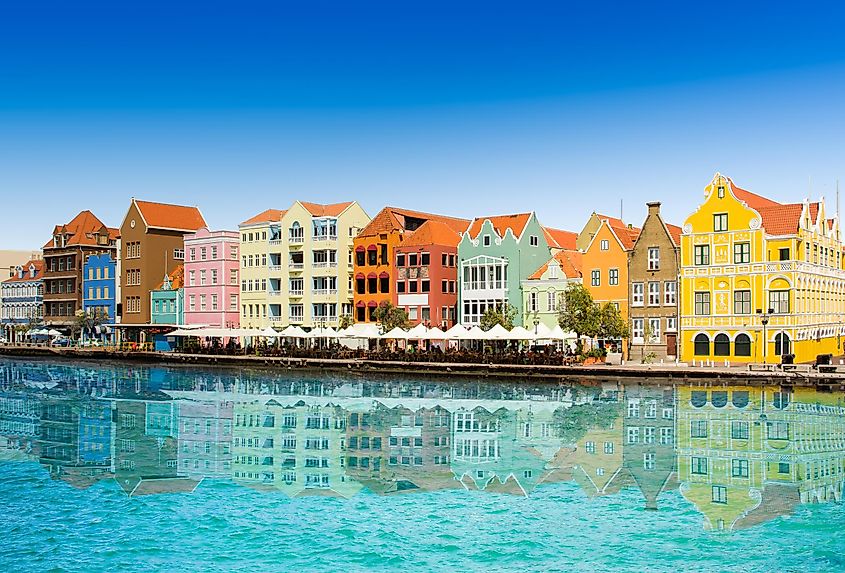
If Croatia's financial requirements are a little too steep (us bloggers/freelancers tend to make it work on a shoestring budget), then give Curaçao a look instead. This colorful and cozy Dutch Caribbean island floats just off the coast of northwestern Venezuela, approximately equidistant to Aruba. Curaçao does not have a minimum income requirement. Instead, they simply charge a $264 (USD) application fee. Dutch and U.S. citizens have a fast-track to their one-year @HOME in Curaçao. They just have to request a judicial declaration (refer to the Government of Curaçao website). Citizens of other nations may still qualify once submitting an additional form (all the basics, plus a clean criminal record, proof of employment, local address, and all that by-now-familiar stuff). Anyone who is approved can stay for six months (with the option to renew for another six months), and "high net-worth investors" can stay for one, three, or five years (or, in some special cases, indefinitely).
Ecuador
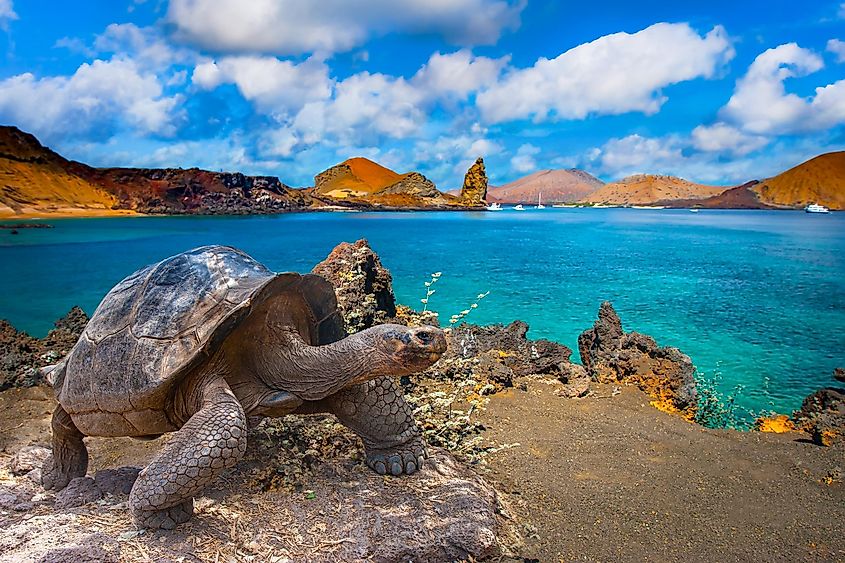
I recently spent three months in this extraordinary South American country, touring its small coastal towns, and adventuring in the Andes while working from my laptop. Though the availability of high-speed wifi can be hit or miss in more remote places (no surprise there), the diversity of environments, low cost of living, laid-back culture, and government incentives should still be enticing for many digital nomads envisioning a long term stay in Ecuador. The Rentista for Remote Work Visa authorizes a two-year, tax-free stay. The visa application costs $50 (USD), and then if approved, there is another $270 fee to actually be granted the visa. As for a minimum income requirement, stand-alone travelers must make $1,350 per month. Applicants are able to bring along other family members/dependants, so long as sufficient additional financial means can be demonstrated.
Grenada

Who doesn't fantasize about retiring to a picture-perfect island in the Caribbean? Well, for us digital nomads, the next best thing is working/living (without income tax, I must continually emphasize) in an eco-tourism paradise. Grenada (along with its smaller associated islands of Carriacou and Petite Martinique) offers a 12-month, renewable stay for remote workers and their families. The fee to apply is rather steep ($1,500 USD for an individual or $2,000 for a family of four), and the income requirement is $37,000/year, but the corresponding tax incentive and comparatively-low cost of living will be well-worth the extra hoop jumping. Americans aspiring to flee abroad can send the application into the Grenada Embassy in Washington, D.C., and expect to hear back within about ten business days. Afterwards, hunker down in the spritely capital of St. George's, where you'll be amongst fellow nomads, and English-speaking locals.
Seychelles
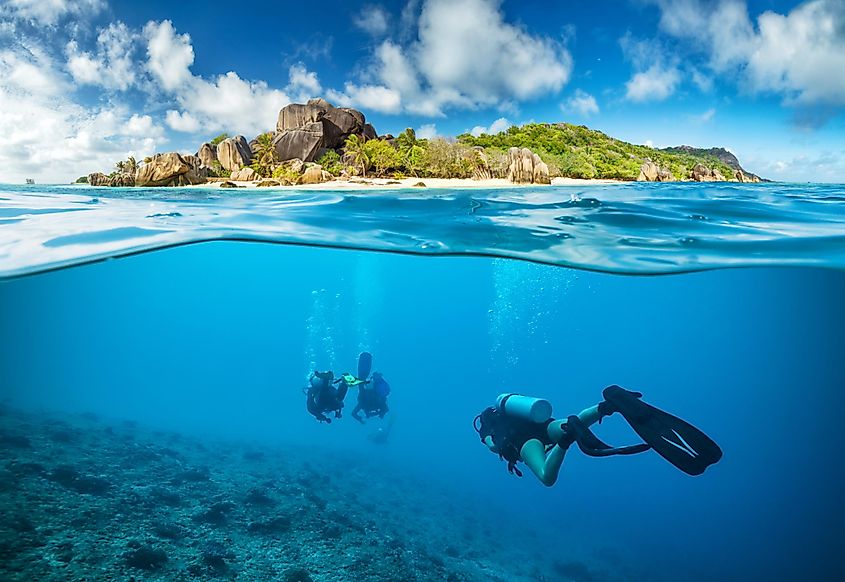
Yet another jaw-dropping island nation (this time of the Indian Ocean variety) that has greased the wheels for digital nomads is Seychelles. This 115-island archipelago off the coast of East Africa has no minimum income requirement (though proof of international employment is mandatory), no income tax, and no capital gains tax either. As of April, 2021, the Workation Retreat Program allows selected travelers to live their tropical dream for one year. Compared to Grenada, the process is refreshingly simple. Just gather up your valid passport, health insurance, and all the basic travel stuff, a letter of employment, and bank statements from the last six months. The government of Seychelles does also need to know what address you'll be staying at, and see a return-flight reservation (which are both common criteria). Otherwise, everything can be submitted online, and processing time typically takes a few weeks.
United Arab Emirates (Dubai)

There will be no shortage of exceptional internet coverage (or attractions great and small) in the United Arab Emirates (UAE), specifically, Dubai. This opulent Middle Eastern metropolitan lives on the cutting edge of architecture, entertainment, and adventure. It also sets a strong example when it comes to the business world, which, as of March, 2021, includes international digital nomads. Not only is there no income tax for international remote workers; there is no income tax for permanent residents, period! However, us laptop-based visitors do have to demonstrate a fairly solid income in order to qualify for a one-year stay (which can be renewed). Though the required monthly income of $3,500 (USD) will exclude some readers, this figure was actually lowered last year from what was initially a $5,000 benchmark. Just be aware that the application fee is also a whopping $611.
Uruguay
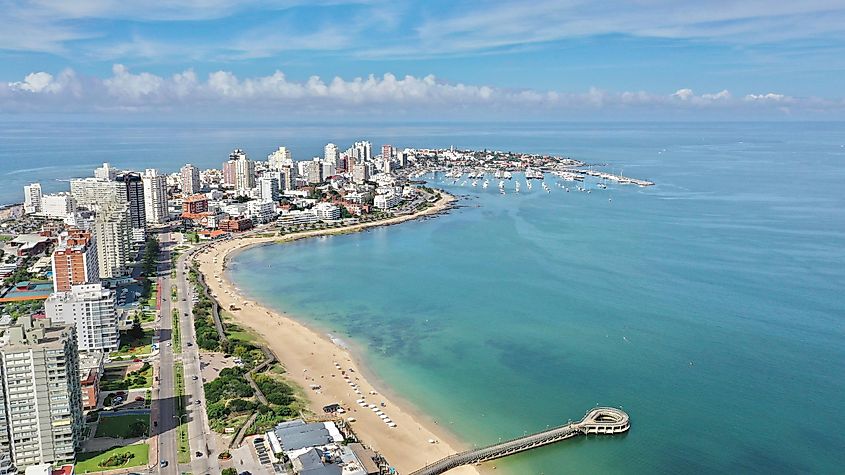
Those yearning to see South America but who are unsure about the mixed impressions presented by the media and local governments should look to Uruguay as a first point of contact. This small, arrowhead-shaped nation is nestled between the extreme south of Brazil, and northeastern Argentina. Uruguay is the safest country on the continent and one of the safer countries in the world. The coastal capital of Montevideo, with its exceptional internet coverage and download speeds, is a natural gathering point for remote workers - and it also ranks as the safest city in South America. Simply fly down there as a regular tourist and then fill out an online form stating that you have a clean criminal record and are able to support yourself with remote work. Then, take the permit over to the National Civil Identification Office to get approved for a six-month stay (which can be extended for another six months). The process is said to be quite straightforward.
There has never been a better time to take up remote work. In the last three to four years, many governments across the world have rolled out programs aimed at attracting digital nomads. These specialized visas have reasonable criteria/fees and maximal benefits. So take advantage of this sweet spot in time before A.I. swoops in to steal the show. Say goodbye to the beige office walls and head to one of these ten countries with zero income tax for digital nomads. Bon voyage, fellow itinerant!
Note: Be sure to check with local authorities for exact, up-to-date requirements for digital nomad visas.











